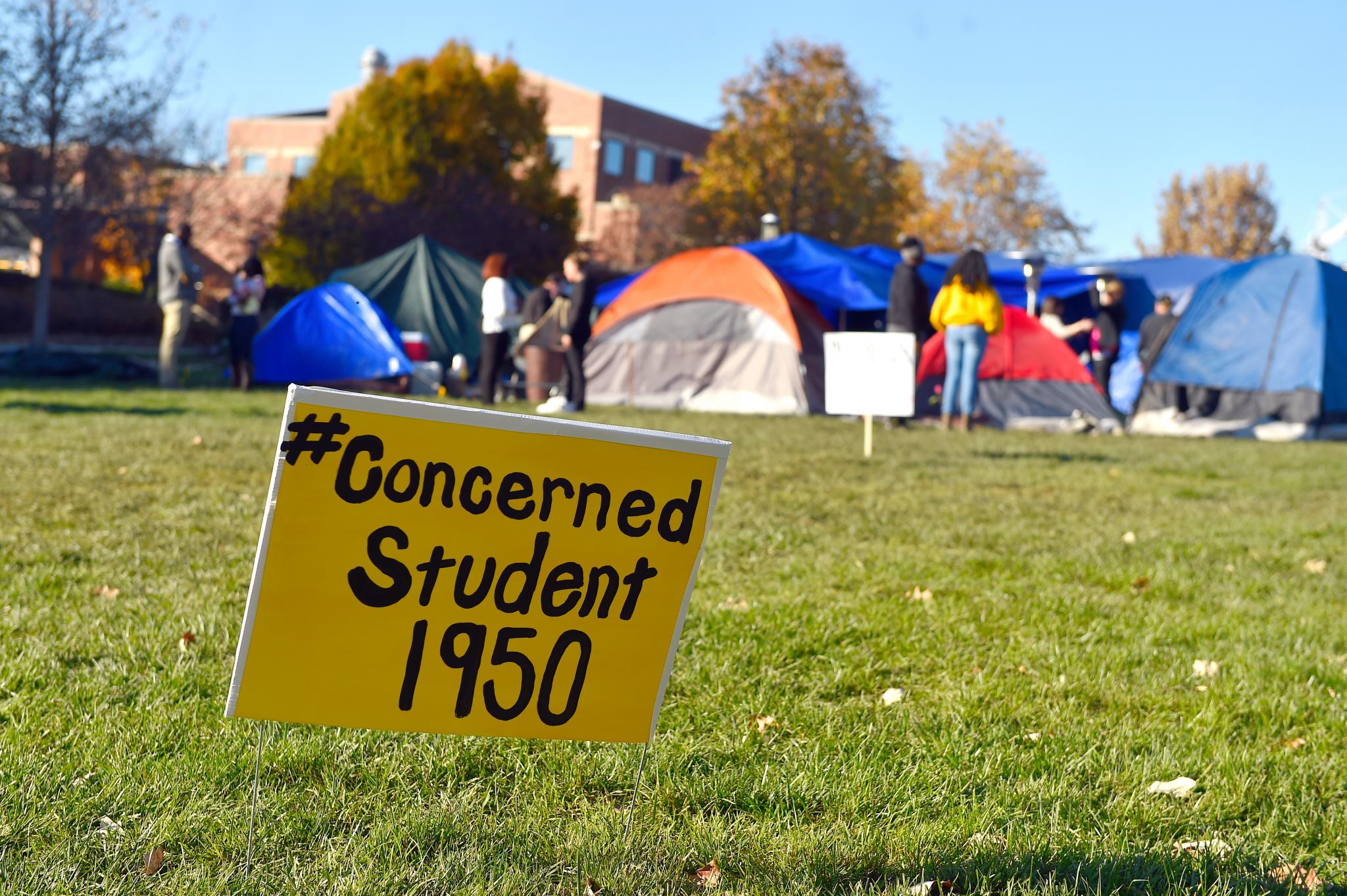
Brianna Arps is a senior at the University of Missouri studying journalism and minoring in Black studies. The 21-year-old has been on campus and witnessed firsthand the swelling racial tensions among students. This is her story.
Before everything started, my experience with racism on campus had been subtle. I’ve never had anyone come up to me and blatantly harass me, but I have experienced it in ways where people doubt my presence on campus in regards to my academic achievements.
However, earlier this year, I was on the homecoming court, and we were practicing a play that we were going to perform. About 15 minutes after I left, a drunk White male came and called the group I had been with “niggers.” It was really hurtful, and it kind of, at first, it made me doubt myself and my potential.
Last year, a lot of backlash started to occur when students founded the activist group MU for Mike Brown. Members of that movement graduated, but the issues still persisted. Around homecoming this year, Concerned Student 1950 was founded, which brought the focus to the administration and systematic oppression. Administration failed to calm that oppression, and their ignorance really made things come to a boiling point.
When anonymous online users began posting death threats on the app Yik Yak, a lot of my Black friends did not go to class the following day. When you walk around campus with [White students], you’re like, ‘Do you really feel this way about me? Do you really want me here?’ so I’ve been a little standoffish lately with my White peers.
Recently, I was crossing the street to attend a class, and there was a White male standing across the street. He looked at me dead in my face and spit on the ground. It’s hard to stay focused and motivated when you’re attending an institution where your peers also attend that aren’t very welcoming or don’t want you here.
Why Did it Take Student Athletes to Ignite Change at the University of Missouri?
I’ve seen so many students on Twitter talk about how their parents want to pull them out of school, and I’ve heard also so many potential incoming freshmen say that they can cross Mizzou off of their college list. And this is where it hurts the school: financially, in their pockets. Students here that want to make sure that this is an institution that will love and value them just like anybody else.
Mizzou and other schools across the nation are starting to value diversity, which is great, but these schools need to practice inclusion. It’s one thing to say that you have Black students or Asian students or Latino students, but it’s another thing to want them to be there and to do well in a positive, healthy learning environment. If we don’t feel like we’re welcome here, then we’re not going to be here.
Concerned Student 1950 activists are still doing teach-ins—forums where people can go and learn—and demonstrations on campus to make people more aware. Before the news stories began, some people on campus would walk by the Concerned Student 1950 campsite like, ‘What are they doing?’
The teach-ins help people become aware of racism and discrimination that is embedded in Mizzou’s history. I agree with President Obama’s recent statements [Obama voiced his support for the students, but added that its crucial that they listen to the other side]: Courageous conversation or difficult dialogue requires all parties involved to listen to one another.
As the Mizzou movement spreads to other campuses, it’s important that students speak up. Make administration aware of what you’re doing. You pay a lot of money to go to school, and if you’re not happy with the treatment that you’re receiving, you have the right to say something. The people who serve you essentially should want to make things better, and if they don’t, you have the power to try to remove them and get other people who really care. Keep fighting. Keep going. Keep demonstrating, and you’re voice will be heard.